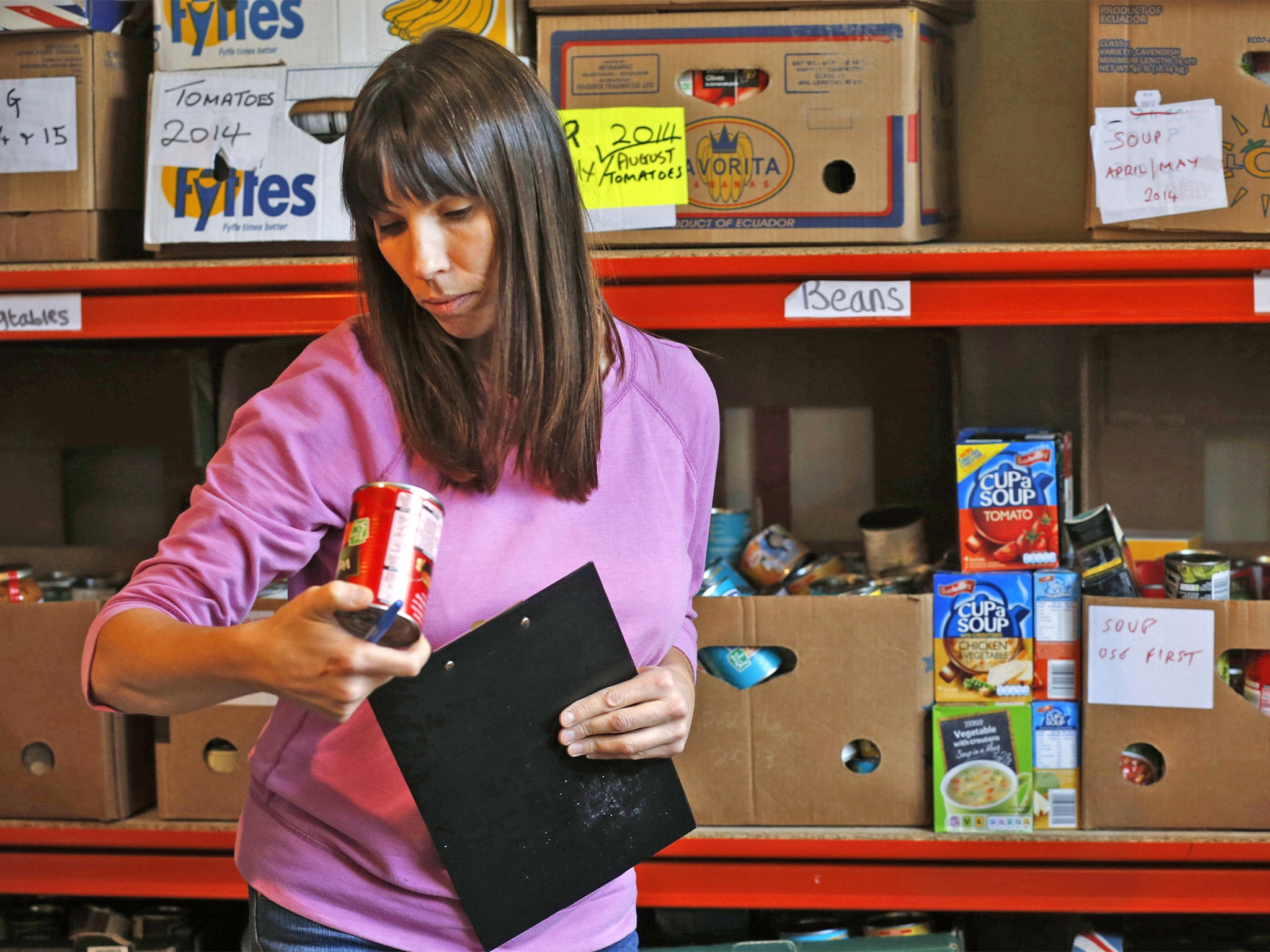We must not normalise food banks. Their proliferation is a mark of shame on this country
Ministers refuse to acknowledge the depth and scale of the crisis


It is a national disgrace that this Christmas there are tens of thousands having to turn to food banks. Britain is experiencing a food poverty explosion. The Trussell Trust estimate that they will feed 700,000 people this financial year. Whilst 13 million people in Britain are living below the poverty line – one in five – it’s no surprise that hunger is a reality for so many adults and children. Yet this in one of the richest countries on earth.
Last year I secured the first parliamentary debate on food banks. It was a relatively new phenomenon. Most people had never heard of them a few years ago. My Labour colleagues and I exposed some shocking statistics: almost one in ten people in the UK have skipped meals because of poverty, gone without food to feed their families or relied on friends and family for food. We pressed ministers to tackle the sharp end of the cost of living crisis, but we failed. Ministers refuse to acknowledge the depth and scale of the crisis. Yet ministers view food banks as merely an expression of people’s good will, a worthy charitable enterprise or the manifestation of the illusive ‘big society’.
It is true that food banks are a sign that the British retain their altruistic instincts. I support my local food banks whenever and however I can. But I am deeply concerned about their normalisation. The presence in every supermarket of collection points, the Harvest Festivals turned into food bank collections and the acceptance of the phrase ‘food bank’ into everyday speech: these things make food banks ‘normal’. They must not become a part of our national life – they are a mark of shame in our communities, and should go the same way as the Poor Law Guardians and the workhouse.
I have visited several food banks over the past two years. I have never met anyone there who isn’t desperate, ashamed and doesn’t genuinely need to eat. No one walks into a food bank with their head held high. When ministers say that people use food banks because they can’t handle their household budgets, or because they have drug addictions, or even just because they can, they show how tragically out of touch they are.
Food poverty exists because of unemployment, low wages, high costs of heating, as well as problems at the DWP including delays in receiving social security, and the cruel and unfair Bedroom Tax. These are the things ministers could tackle, with the will to do so. Instead, they blame the victims and wash their hands of them.
Ministers should understand that it is not merely an immediate crisis for the people unable to feed themselves this Christmas. By creating a generation of vulnerable people, especially children, with a poor, irregular diet, we are storing up a public health time bomb. We are starting to understand the obesity epidemic. Soon we will see an explosion in the other conditions related to poor-quality, unhealthy diets and intermittent hunger. On this government’s watch, we have seen an increase in the diseases of Dickensian England: rickets, scurvy, tuberculosis and malnourishment. Just as the Edwardians discovered at the time of the Boer War, we will soon discover a generation permanently damaged by vitamin deficiency and unhealthy eating.
It’s already starting. Ask anyone in the NHS. A GP tweeted the other week stating "I’m sad to say that at my NHS practice if we have a patient who has unexplained symptoms, we have started asking if they can afford to eat." That tweet struck a nerve. It was retweeted 3,000 times by people horrified by its implications.
In the parliamentary debate last Christmas, my colleague Huw Irranca-Davies made the prediction that more people would be reliant on food banks by next Christmas. How utterly depressing that he was right. As we debate food poverty again today, we will hear that the numbers of people who cannot feed themselves and their family have gone up. I believe that another half a million people having to go through the embarrassment of turning up to a food bank is a national scandal. This Christmas, we should make two pledges: one, to support our local food banks to tackle the immediate emergency of hungry people; and two, to argue for a system of work, wages and social security which means food banks don’t have to exist.
Luciana Berger is Shadow Minister for Public Health and the Labour & Co-operative MP for Liverpool Wavertree
Join our commenting forum
Join thought-provoking conversations, follow other Independent readers and see their replies
Comments